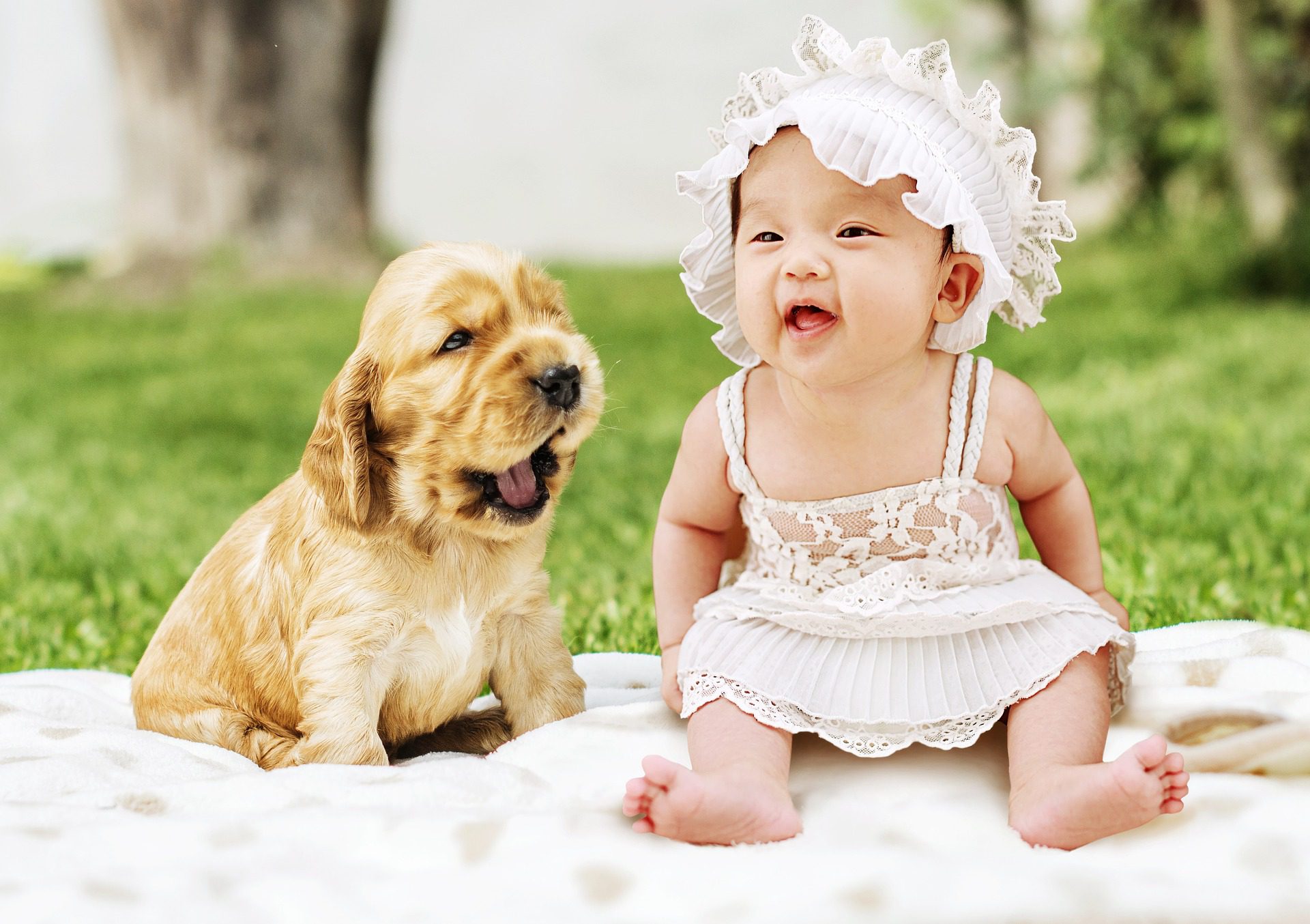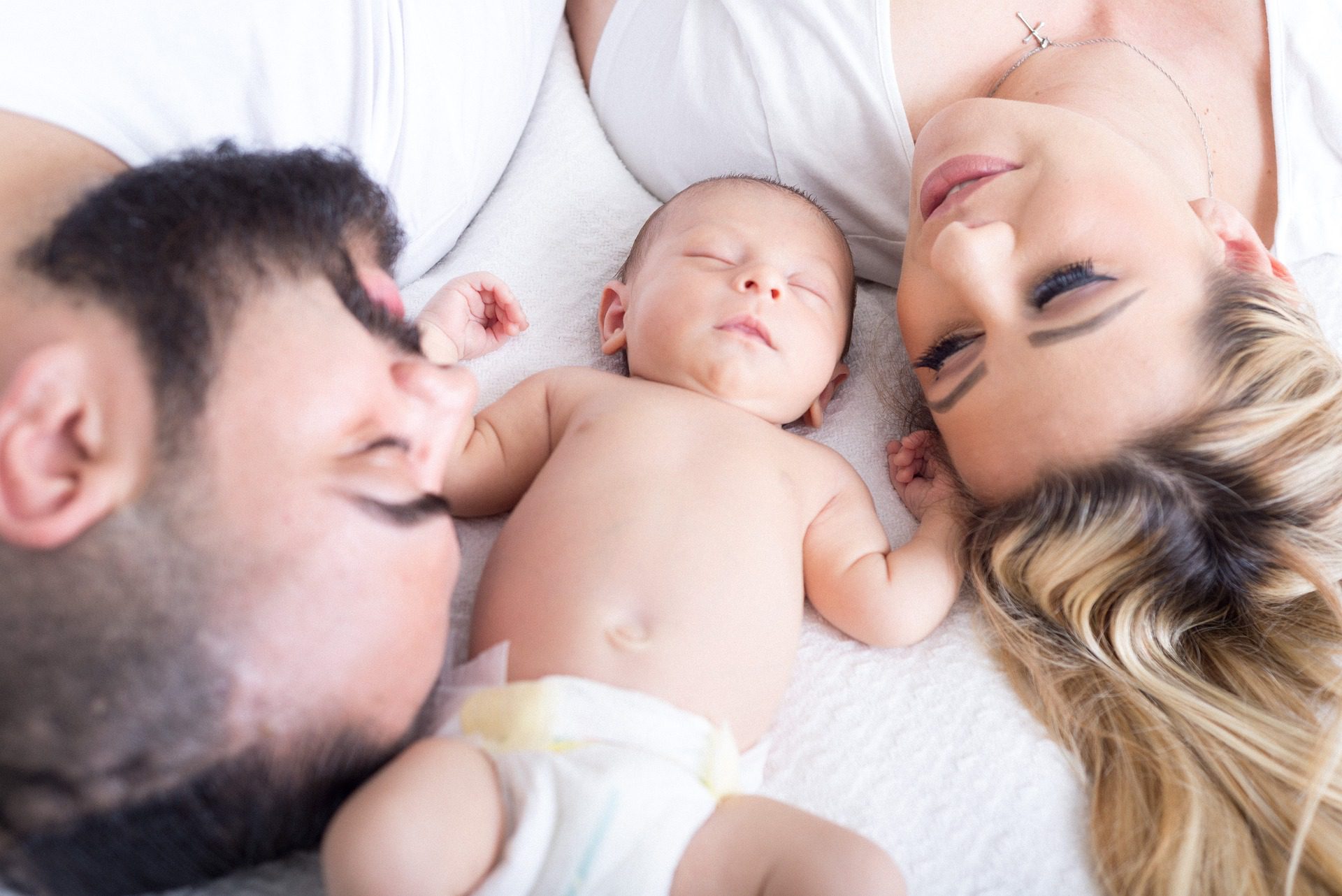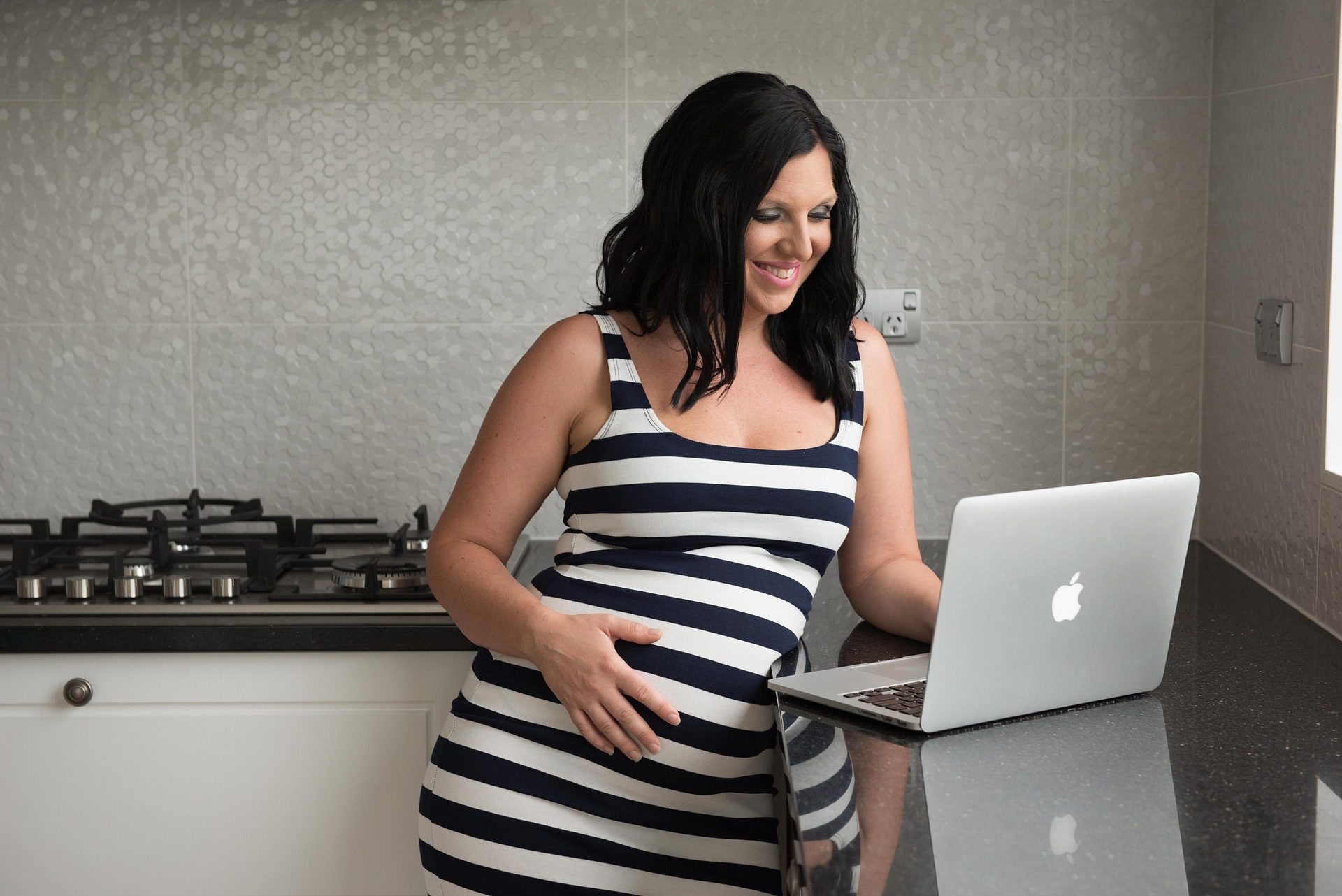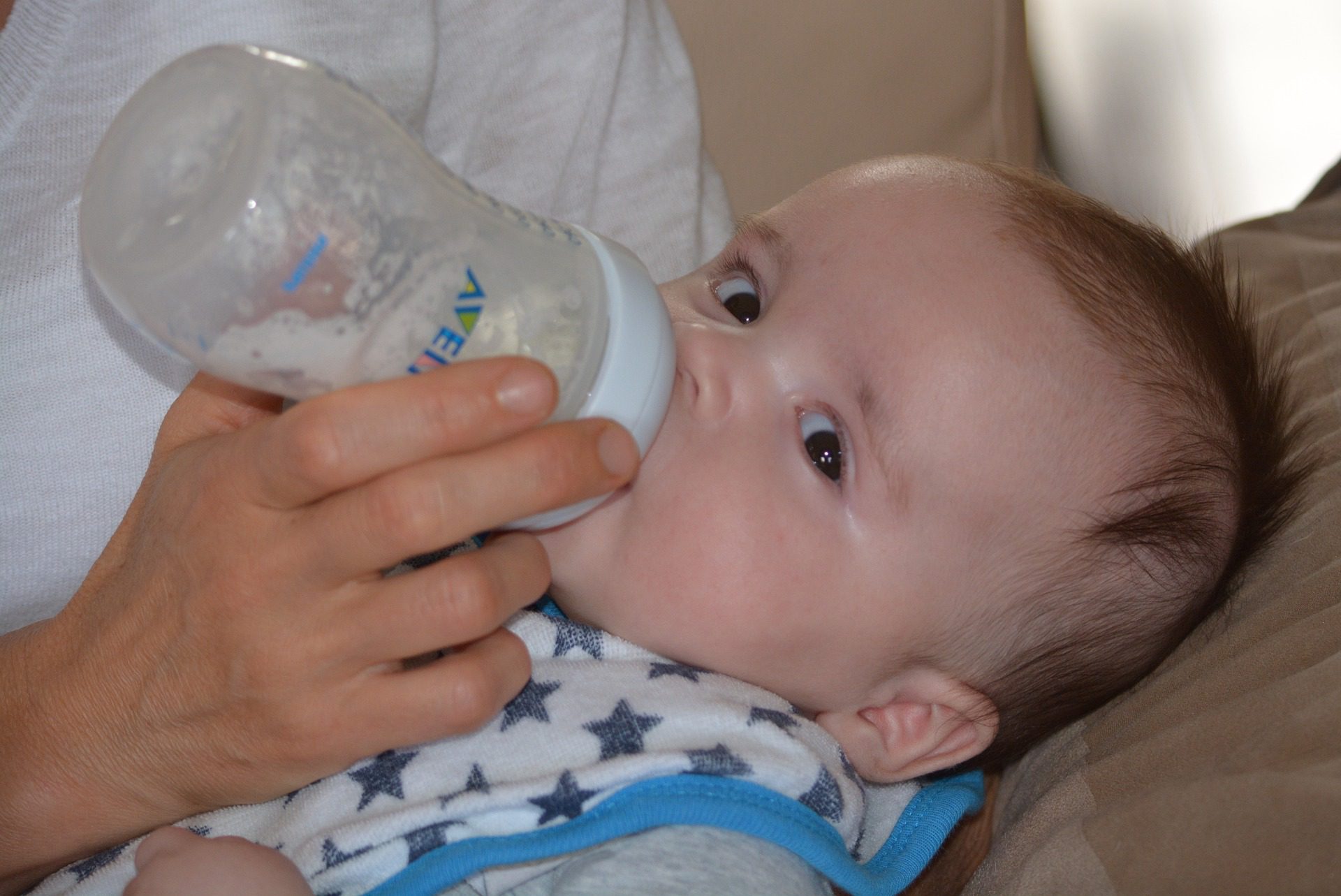 One common question is, is it ok to have pets while pregnant? The short answer is yes. But as with all things while pregnant, the important factor is safety—not just for yourself but for your pet.
One common question is, is it ok to have pets while pregnant? The short answer is yes. But as with all things while pregnant, the important factor is safety—not just for yourself but for your pet.
In general, it is safe for pregnant women to be around dogs as long as their dog is healthy and current on their vaccinations. There are always some exceptions. Pregnant women should be careful around large dogs, dogs that are untrained and stray dogs.
Large dogs can jump and may accidentally knock you down or jump on your stomach. Untrained dogs tend to exhibit erratic behavior. If you currently own a dog that hasn’t received proper training and are pregnant or plan to be pregnant, consider signing your pup up for training classes. Stray dogs may have ticks or fleas that can lead to Lyme disease and other health issues.
Cats are another popular pet and are also generally safe to have while pregnant. You will need to watch out for bites, scratches, and ticks with cats. The most important thing to be careful with is dealing with your cat’s poop. Cat feces can contain the parasite that causes toxoplasmosis. It can enter your body just by touching infected poop and then touching your mouth. To lower your risk of getting toxoplasmosis or other illness from your cat, be sure to wash your hands often, try to arrange for someone else to clean and change the litter boxes, and if possible, have your vet test your cat in advance for toxoplasmosis.
Fish do not typically cause problems for pregnant women, but you should still take precautions such as always washing your hands after feeding your fish or coming in contact with their water and equipment. If no one else is available to clean their tank, be sure to wear gloves and thoroughly wash your hands afterward.
Other types of pets, such as reptiles and amphibians (lizards, snakes, frogs, turtles), can carry salmonella. While it won’t make your pet sick, it can make you sick. Salmonella is dangerous for pregnant women. The best way to minimize risks is to have someone else care for your pet and clean the cage while you’re pregnant. If you must touch your pet, wash your hands immediately afterward.
If you own horses, experts do not recommend horseback riding while pregnant, especially after the first trimester. Riding horses can lead to serious injury to your body or your belly if you are thrown off. While pregnant, you can still spend time with your horses, but as with other pets, be sure to wash your hands after feeding, petting, grooming, or cleaning the stall. And as always, consult with your doctor if you have any specific questions regarding pregnancy and pets.



 Dogs, cats, and other pets can make great playmates for your baby. However, it’s essential to understand that the adjustment period for your pet may be a little difficult.
Dogs, cats, and other pets can make great playmates for your baby. However, it’s essential to understand that the adjustment period for your pet may be a little difficult.
 As any parent knows, welcoming a baby into your life can be expensive. These costs are even higher when your parenthood is made possible through surrogacy. Intended Parents face a large range of expenses: agency fees, surrogate compensation and expenses, clinic fees, and legal costs.
As any parent knows, welcoming a baby into your life can be expensive. These costs are even higher when your parenthood is made possible through surrogacy. Intended Parents face a large range of expenses: agency fees, surrogate compensation and expenses, clinic fees, and legal costs.
 When Intended Parents start exploring the option of surrogacy, many questions run through their minds. It can definitely be a confusing process—how to choose a surrogacy agency, how do you get matched with a surrogate, how to get started, etc. In this blog, we try to cover some of the most frequently asked questions.
When Intended Parents start exploring the option of surrogacy, many questions run through their minds. It can definitely be a confusing process—how to choose a surrogacy agency, how do you get matched with a surrogate, how to get started, etc. In this blog, we try to cover some of the most frequently asked questions.
 We are sure that many women think about attachment before deciding to become a surrogate. It’s reasonable to believe that if you become attached to your own children during pregnancy, you would be attached to the child you are carrying for the Intended Parents.
We are sure that many women think about attachment before deciding to become a surrogate. It’s reasonable to believe that if you become attached to your own children during pregnancy, you would be attached to the child you are carrying for the Intended Parents.
 When deciding if surrogacy is the right option for you, naturally, you will want to weigh out the pros and cons. We have made your decision process a little bit easier by listing our top ten reasons to become a surrogate.
When deciding if surrogacy is the right option for you, naturally, you will want to weigh out the pros and cons. We have made your decision process a little bit easier by listing our top ten reasons to become a surrogate.
 Being pregnant in the workplace under normal circumstances can be challenging, but telling coworkers about your surrogacy can also be stressful. It is not easy to hide your growing belly. While conversations involving your pregnancy may seem overwhelming, you can decide when and how to explain your situation.
Being pregnant in the workplace under normal circumstances can be challenging, but telling coworkers about your surrogacy can also be stressful. It is not easy to hide your growing belly. While conversations involving your pregnancy may seem overwhelming, you can decide when and how to explain your situation.
 At Shared Conception, we know the holidays can be extra rough when you are trying to start your own family. Every holiday commercial shows happy families celebrating, and that can be especially hard to watch.
At Shared Conception, we know the holidays can be extra rough when you are trying to start your own family. Every holiday commercial shows happy families celebrating, and that can be especially hard to watch.
 With Christmas and New Years’ Eve approaching, there will be a lot of party invites from friends, family, and even work. Holidays always pose a challenge when you are a surrogate mother having a baby for excited Intended Parents. Here are a few minor adjustments you can make before attending holiday parties that will help you and the baby.
With Christmas and New Years’ Eve approaching, there will be a lot of party invites from friends, family, and even work. Holidays always pose a challenge when you are a surrogate mother having a baby for excited Intended Parents. Here are a few minor adjustments you can make before attending holiday parties that will help you and the baby.
 Following a successful surrogate pregnancy, the surrogate may pump and provide the Intended Parents with breast milk for the baby. Breast milk can be used to supplement baby formula or may as the baby’s primary diet. Many families wonder if breast milk is necessary or if formula is sufficient. Whether you choose formula, breast milk, a combination of the two, or induced lactation – the answer is whatever is ‘fed is best,’ and what is right for your surrogate, your baby, and your family may not be right for everyone.
Following a successful surrogate pregnancy, the surrogate may pump and provide the Intended Parents with breast milk for the baby. Breast milk can be used to supplement baby formula or may as the baby’s primary diet. Many families wonder if breast milk is necessary or if formula is sufficient. Whether you choose formula, breast milk, a combination of the two, or induced lactation – the answer is whatever is ‘fed is best,’ and what is right for your surrogate, your baby, and your family may not be right for everyone.